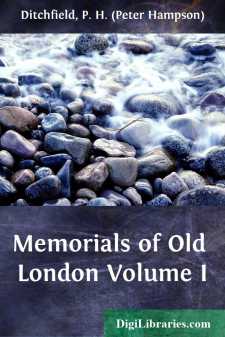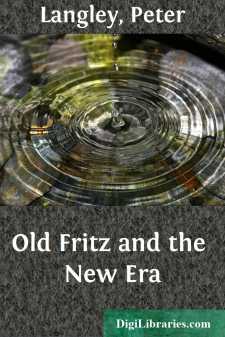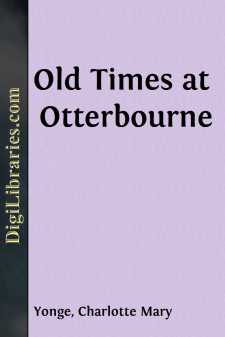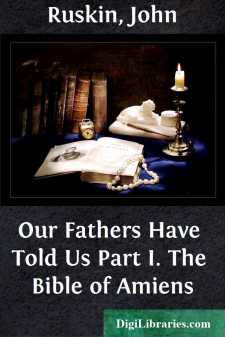History
- Africa 30
- Americas (North Central South West Indies) 50
- Ancient 68
- Asia 58
- Australia & New Zealand 8
- Canada 41
- Caribbean & West Indies 1
- Civilization 20
- Eastern Europe 12
- Europe
- Expeditions & Discoveries 60
- General 77
- Historical Geography 1
- Jewish 9
- Latin America 3
- Medieval 8
- Middle East 13
- Military 248
- Revolutionary 8
- Study & Teaching 5
- United States 353
- Western Europe 56
- World 13
Europe Books
Sort by:
I.—Celtic London When we see the words "Celtic London" at the head of a chapter we naturally feel inclined to ask, "Was there such a place? Was there any Celtic London?" Although it is almost impossible to answer such a question by either "yes" or "no," it may be worth while to examine it briefly before passing on to the domains of authentic history. In the first...
more...
by:
Hugh Miller
CHAPTER I."Ye gentlemen of England,Who live at home at ease,Oh, little do ye think uponThe dangers of the seas."—Old Song.Rather more than eighty years ago, a stout little boy, in his sixth or seventh year, was despatched from an old-fashioned farm-house in the upper part of the parish of Cromarty, to drown a litter of puppies in an adjacent pond. The commission seemed to be not in the least...
more...
by:
F. Jordan
FERDINAND VON SCHILL. Profound silence reigned in the valleys and gorges of Jena and Auerstadt. The battles were over. The victorious French had marched to Jena to repose for a few days, while the defeated Prussians had fled to Weimar, or were wandering across the fields and in the mountains, anxiously seeking for inaccessible places where they might conceal their presence from the pursuing enemy. A...
more...
by:
Victor Hugo
December 20, 1848 On Thursday, December 20, 1848, the Constituent Assembly, being in session, surrounded at that moment by an imposing display of troops, heard the report of the Representative Waldeck-Rousseau, read on behalf of the committee which had been appointed to scrutinize the votes in the election of President of the Republic; a report in which general attention had marked this phrase, which...
more...
CHAPTER I. JANUARY."Come then, come then, and let us bringUnto our pretty Twelfth-Tide King,Each one his several offering."Herrick'sStar Song. Dedication Festivals—New Year's Day—"Wassail"—Twelfth Night—"King of the Bean"—St. Distaff's Day—Plough Monday—Winter Games—Skating—Sword-dancing. N the old life of rural England few things are more...
more...
by:
Peter Langley
FOREWORD I would merely say a few words in justification of the Historical Romance, in its relation to history. Any one, with no preceding profound study of history, who takes a few well-known historical facts as a foundation for an airy castle of romantic invention and fantastic adventure, may easily write an Historical Romance; for him history is only the nude manikin which he clothes and adorns...
more...
Not many of us remember Otterbourne before the Railroad, the Church, or the Penny Post. It may be pleasant to some of us to try to catch a few recollections before all those who can tell us anything about those times are quite gone. To begin with the first that is known about it, or rather that is guessed. A part of a Roman road has been traced in Otterbourne Park, and near it was found a piece of...
more...
by:
John Ruskin
PREFACE. The long abandoned purpose, of which the following pages begin some attempt at fulfilment, has been resumed at the request of a young English governess, that I would write some pieces of history which her pupils could gather some good out of;—the fruit of historical documents placed by modern educational systems at her disposal, being to them labour only, and sorrow. What else may be said...
more...
Our Sailors. “Let fall the topsails, hoist away—up anchor, round goes the capstan—sheet home—haul taut the braces! and away we glide, to prove to our countrymen that British sailors have not been sleeping on beds of roses for the last quarter of a century since her gracious Majesty Queen Victoria came to the throne.” So wrote our author some forty years ago. “Up anchor, full speed ahead,”...
more...
The Afghan Campaigns—1839-42. In 1809 the reigning Ameer of Afghanistan, Shah Soojah-ul-Moolk, was dispossessed of his throne and an exile. Runjeet Singh, the Sikh ruler of Punjaub, plundered and imprisoned him at Lahore, and obtained from him the famous Koh-i-noor, the great diamond which is now among the crown jewels of Great Britain. Eventually Soojah escaped from Lahore and became a pensioner of...
more...











